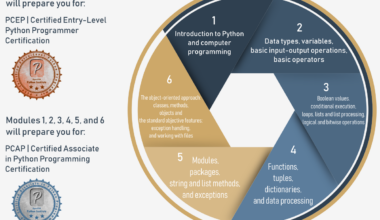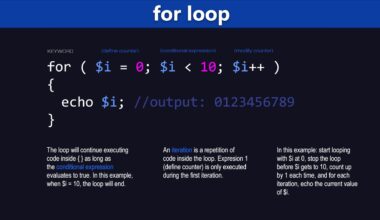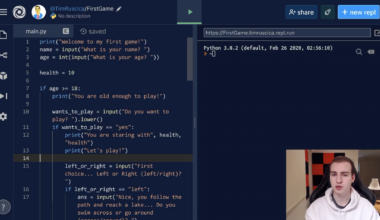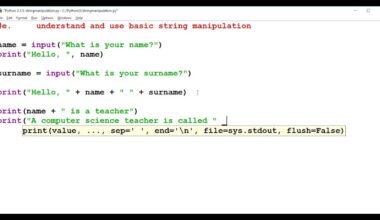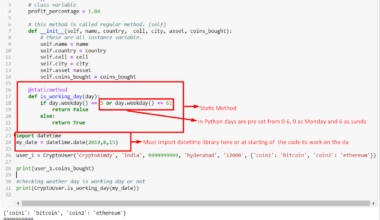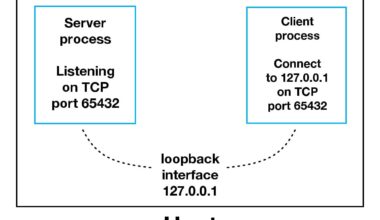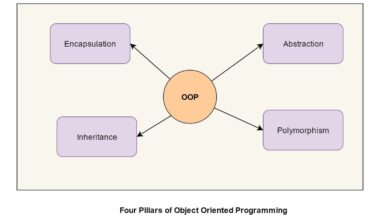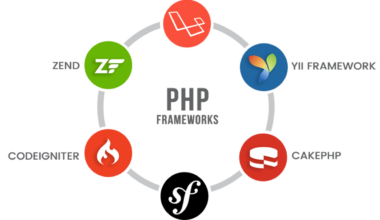What is PHP?
As a novice web developer, you might have heard of PHP countless times but wondered what it means. PHP, which stands for Hypertext Preprocessor, is a server-side scripting language used in developing web applications. It is an open-source language that is highly popular and widely used by developers worldwide.
PHP is versatile and can be used for a wide range of web development tasks, including generating dynamic page content, creating web applications, and handling form data. It can also be used in developing e-commerce sites, content management systems (CMS), and customer relationship management (CRM) software.
PHP is easy to learn and use, making it an excellent choice for beginners. It is also portable, meaning it can run on various operating systems such as Windows, macOS, and Linux. Additionally, PHP is compatible with popular databases such as MySQL, PostgreSQL, and Oracle.
One of the significant advantages of PHP is its ability to execute server-side scripts, which means it can generate dynamic web content. This makes PHP an excellent choice for developing web applications with responsive and interactive features.
In conclusion, PHP is a flexible and powerful language that can be used to build robust web applications. It is an excellent choice for web developers, both beginners, and experienced professionals, looking for a language that is easy to learn and use.
The Advantages of PHP
PHP offers numerous advantages that make it a popular and preferred language for web development. Here are some of the advantages of using PHP:
Open Source Language
PHP is an open-source language, meaning it is free to use, distribute, and modify. This makes it an accessible language for developers, especially those starting in web development. Additionally, its open-source nature means that it has a vast community of developers who are continually improving and updating the language.
Easy to Learn and Use
PHP has a simple and easy-to-learn syntax that makes it an excellent choice for beginners. The language is also easy to use as it requires minimal coding to execute tasks. This makes it an efficient language for developers looking to create web applications quickly.
Compatibility with Various Operating Systems and Databases
PHP is a cross-platform language, meaning it can run on various operating systems such as Windows, macOS, and Linux. Additionally, PHP is compatible with popular databases such as MySQL, PostgreSQL, and Oracle. This makes it easy for developers to integrate PHP into their existing systems.
Supports Object-Oriented Programming (OOP)
PHP supports OOP, a programming paradigm that allows developers to create reusable code. OOP enables developers to organize their code into objects, making it more manageable and easier to maintain. This makes PHP a more robust and scalable language for developing web applications.
Large Community and Resources
PHP has a massive community of developers and users, which means there are numerous resources available for learning and troubleshooting. The community also provides various libraries and frameworks that make it easier for developers to create web applications.
In conclusion, PHP is a powerful and versatile language that offers numerous advantages for web development. Its open-source nature, ease of use, compatibility with various operating systems and databases, support for OOP, and large community make it an excellent choice for building robust web applications.
PHP Frameworks and Libraries
As web development continues to evolve, developers are always looking for ways to make their work easier and more efficient. One way to achieve this is by using PHP frameworks and libraries. These are pre-written code libraries and tools that make it easier for developers to create web applications.
PHP frameworks are collections of classes and libraries that provide a basic structure for developing web applications. They help developers by providing a foundation for building web applications, which means they don’t have to start from scratch. Some popular PHP frameworks include Laravel, CodeIgniter, and Symfony.
PHP libraries, on the other hand, are collections of pre-written code that developers can use to perform specific tasks in their web applications. These libraries can help developers save time and effort by providing ready-made solutions to common problems. Some popular PHP libraries include Guzzle, Swift Mailer, and PHPMailer.
Using PHP frameworks and libraries has several advantages, which include:
Faster Development
Using frameworks and libraries can significantly speed up the development process. Since these tools provide a foundation and pre-written code, developers don’t have to spend time building everything from scratch. This means they can focus on the unique aspects of their web application, which results in faster development time.
Consistency and Standardization
Frameworks and libraries provide consistency and standardization in web development. Since these tools provide a structure and pre-written code, developers can ensure that their code is consistent and follows best practices. This makes it easier for other developers to understand and collaborate on the project.
Improved Security
Using frameworks and libraries can improve the security of web applications. These tools have built-in security features that help developers protect their applications from common threats such as SQL injection and cross-site scripting attacks. Additionally, using popular frameworks and libraries means that developers can benefit from the security updates and patches released by the community.
Better Quality Code
Frameworks and libraries can help developers write better quality code. Since these tools provide a structure and pre-written code, developers can focus on writing clean, readable, and maintainable code. This results in better quality code that is easier to maintain and update.
In conclusion, using PHP frameworks and libraries can significantly improve the development process for web applications. These tools provide a foundation, pre-written code, consistency, security, and better quality code. Developers can choose from numerous PHP
Security Considerations with PHP
When developing web applications with PHP, it is essential to consider security to protect against common vulnerabilities. Here are some security considerations to keep in mind when using PHP:
Input Validation
Input validation is the process of checking data entered into a web application to ensure it is in the correct format and free from malicious code. Failing to validate input can lead to security vulnerabilities such as SQL injection and cross-site scripting attacks. PHP provides various functions such as filter_input and preg_match to validate input.
SQL Injection Prevention
SQL injection attacks occur when an attacker injects malicious SQL code into a web application to access or manipulate data in a database. To prevent SQL injection attacks, developers should use prepared statements and parameterized queries when executing SQL queries in their PHP code.
Cross-Site Scripting (XSS) Prevention
XSS attacks occur when an attacker injects malicious code into a web application, which then executes on a user’s browser. To prevent XSS attacks, developers should sanitize user input and output and use HTML entities to encode special characters.
Password Security
Passwords are a common target for attackers, so it is crucial to ensure they are stored securely. PHP provides various functions such as password_hash and password_verify to securely store passwords and verify them when a user logs in.
Secure Sessions
Sessions are used to store user data between requests and are essential for web applications. However, sessions can be vulnerable to attacks such as session hijacking and session fixation. To prevent these attacks, developers should use secure session management techniques such as using SSL/TLS encryption, regenerating session IDs, and setting session cookie parameters.
Error Handling
Error handling is an often-overlooked aspect of web application security. Proper error handling can prevent attackers from gaining access to sensitive information such as error messages that reveal information about the application’s code or database structure. PHP provides various error handling functions such as error_log and display_errors to handle errors properly.
In conclusion, security is a critical aspect of web application development with PHP. Developers should keep in mind input validation, SQL injection prevention, XSS prevention, password security, secure sessions, and error handling to protect against common vulnerabilities. By following these best practices, developers can ensure their PHP web applications are secure and protected
Final Thought: The Future of PHP Development
PHP has been around for over two decades and has evolved significantly over the years. As web development continues to change, PHP has remained relevant and continues to be widely used by developers worldwide. So, what does the future hold for PHP development?
One thing is for sure, PHP is not going away anytime soon. With its versatility, ease of use, and compatibility with various databases and operating systems, PHP will continue to be a popular choice for web development. Additionally, its large community of developers and users means that there will always be support and resources available.
PHP is continually evolving, with new versions and updates being released regularly. The latest version of PHP, PHP 8, was released in November 2020, and it offers several new features and improvements. These include improvements in performance, new syntax, and compatibility with new technologies.
There is also a growing trend towards using PHP frameworks and libraries, which makes development faster and more efficient. As more developers adopt these tools, they will become more popular and widespread, further improving the PHP development process.
Despite its popularity, PHP also faces some challenges. One of the main challenges is security, as web applications built with PHP can be vulnerable to attacks. However, developers can mitigate these risks by following best practices and using secure coding techniques.
In conclusion, the future of PHP development looks bright, with continued support and evolution. As web development continues to change, PHP will adapt and remain a relevant and powerful language for building web applications. By staying up-to-date with the latest versions and adopting best practices, developers can ensure that their PHP web applications are secure, efficient, and effective.











